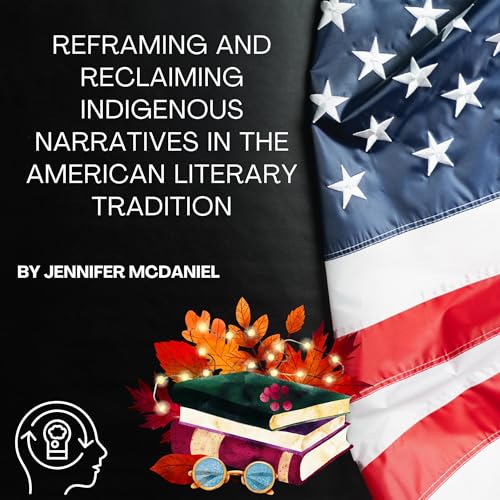
Reframing and Reclaiming Indigenous Narratives in the American Literary Tradition
Failed to add items
Add to basket failed.
Add to Wish List failed.
Remove from Wish List failed.
Follow podcast failed
Unfollow podcast failed
Buy Now for $9.99
-
Narrated by:
-
Molly A Papier
About this listen
In America’s history of settler colonialism, the “master narrative” framing inscribed into law, literature, and media has functioned as a powerful tool of control and conquest. America’s early history is not merely a record of events but a carefully constructed story — a dominant, overarching framework shaped by those in power to justify their actions and maintain control.
Moreover, presenting settler actions as inevitable, morally justified, or necessary for the advancement of “civilization” allows the master narrative to distort and erase Indigenous perspectives. Within this framework, colonization is framed as a heroic mission, with settlers cast as bringers of progress and enlightenment, while Indigenous peoples are “othered” as obstacles to this mission, either through their perceived “savagery” or resistance to violent colonial forces.
Crucially, the master narrative portrays the violence perpetrated by white colonists against Indigenous communities as either unavoidable or benevolent efforts to subdue and assimilate Native peoples into colonial society under the guise of salvation. By controlling how America’s history is told, the master narrative legitimizes and normalizes the brutality inflicted upon Indigenous individuals, erasing the truth of colonial exploitation and genocide built within settler dominance. This framing conceals the true motives behind these actions: territorial expansion, resource exploitation, and the maintenance of settler dominance.
©2025 Jennifer McDaniel (P)2025 Jennifer McDaniel

